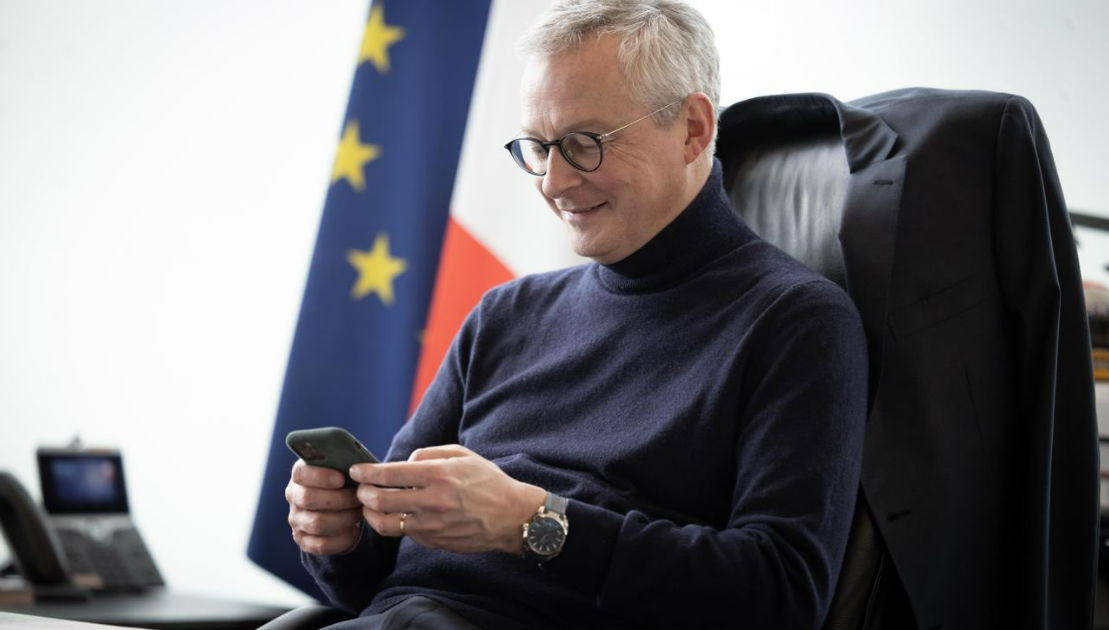In France, in the absence of gas, we have ideas.
From Emmanuel Macron to Gilles Le Gendre via Olivier Véran and Bruno Le Maire, deputies and ministers never stop presenting new measures to offset the energy crisis and above all, to give advice to the French, with a word of order: every gesture counts.
Without exception.
A few months before a winter placed under the sign of "energy sobriety", some are not afraid to set an example even if it means taking the most extreme measures.
This Wednesday, September 28, guest of France Info, the LREM deputy from Paris Gilles Le Gendre confided that he no longer used his dryer and now extended his clothes by hand.
Breathtaking !
An immediate response to the latest statements by the Minister of the Economy who, the day before, showed that he too could break the codes: “You
will no longer see me with a tie, but with a turtleneck.
And I think it will be very good, it will allow us to save energy, to show sobriety.
, said Bruno Le Maire at the microphone of France Inter.
We've known for a long time that real heroes don't wear capes, we now discover that they don't wear ties either.
While waiting for the executive to distribute
“turtleneck checks […] to counter the effects of rising energy prices”
, as a researcher specializing in homeland security suggested on Twitter, no without irony, everyone can (and must) “act on their own scale” to avoid possible rationing or cuts in gas or electricity this winter.
It is the President of the Republic in person who says so.
On September 5, Emmanuel Macron performed a high-level French infantilization number in front of the press, inviting his fellow citizens to
"change behavior"
, to
"put the air conditioning a little less strong
" when it's hot .
and "
slightly less intense heating"
when
“around 19 degrees in the room”.
A salutary reminder for these millions of French people who had probably considered increasing their heating by ten degrees next January for the pleasure of seeing their electricity bill soar.
The Head of State then followed in the footsteps of the government spokesperson.
At the heart of a scorching summer, on July 20, Olivier Véran had showered the hopes of all those who would have gotten into the habit of leaving their television on when they go out for some fresh air on the Côte d'Azur: "
When we going on a weekend or on vacation, we unplug as many electrical outlets as possible because otherwise they continue to consume energy
", he underlined,
The liberalization of electricity has made prices volatile and made long-term “spontaneous” investments impossible
Jean-Marc Jancovici
Certainly, these everyday gestures are always welcome acts of good citizenship.
But the executive's communication campaign, like an annoyed parent railing against his turbulent teenager, seems worn since the health crisis, to the point that it risks becoming counterproductive.
By dint of urging the French to open their windows, to stop kissing grandma and now to turn down the heating, the government would almost manage to produce the opposite effect, like a Nadine de Rothschild.
When the Baroness delivers her inextricable lessons in good manners to the people, it's hard to resist the temptation to put both elbows on the table.
These incessant calls for sobriety could give rise to a smile if they did not highlight the blindness and naivety of successive governments in terms of energy policy.
Let's say it: the war in Ukraine is not solely responsible for the crisis we are going through.
Interviewed in
Le Figaro
, polytechnician Jean-Marc Jancovici returned to the dramatic consequences of the
"liberalization"
of the electricity market.
"It made prices volatile and made long-term 'spontaneous' investments impossible."
Not to mention the decision, in June 2020, to close the Fessenheim nuclear power plant.
Just after the shutdown of the reactors,
“the suppressed production was compensated by fossil fuels, coal and gas power plants, in France or outside France.
In fact, wind and solar capacities cannot instantly provide more since all of their production already has priority on the network.
Additional renewable capacities then came in part to replace Fessenheim, but with fossil fuels as support”
, analyzed the engineer.
Before concluding:
“Closing Fessenheim has clearly led to more emissions than if we had not done so”.
Instead of giving pledges of sobriety and using communication tricks by preaching a good eco-conscious word, wouldn't the executive have been better advised to take upstream measures worthy of the name so that the France retains its energy sovereignty?







